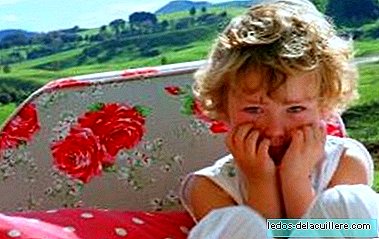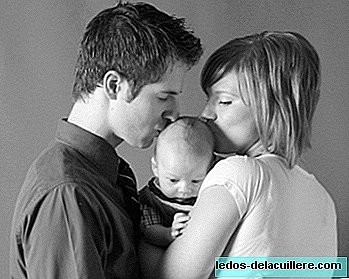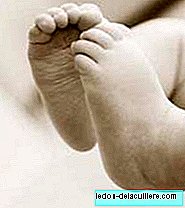
When children, by the age of four, begin to be able to convey their elaborate questions, we must be prepared for all sorts of disturbing questions. Death, sex and complicated questions about natural processes will reach us, for sure. How to answer your awkward questions?
The most uncomfortable questions are a sign of the child's natural great desire to learn, to understand life and nature, but they also show their concerns and fears, expressed indirectly. Let's talk today about death.
Feeling restless or disturbed by death may occur even if there has not been a close death in the family, can be triggered by the death of a pet, see a hearse, listen to a conversation ... it is inevitable that sooner or later children will find themselves the concept of death and want to understand it. They need to know and they need to be able to integrate it into their life, without losing security and joy.
The questions can be several: are we all going to die? Am I going to die? Can my father and mother die tomorrow? What happens when one dies? Will it hurt me to die?
Behind these questions is one thing I need, imperiously to know: are they going to leave me only the people I love and who care for me?
Children need, above all, security, because without our care they feel lost and abandoned. The simple idea of losing ourselves is terrifying, the biggest fear of a child (that's why we never, never, have to threaten to abandon them). For a child, abandonment is worse than death, abandonment is death.
The baby and the discovery of death: if you are alone, you are dead.
This seems to me a subject that he deserves to talk about now: abandonment. Babies feel that if their parents are not by their side, especially at night or in places or with strangers, they are at serious risk of death. Their brains have not learned about the world, they only have as tools to survive their instincts. And the small and helpless human baby, born unable even to move from one place to another by himself, even to cling to his mother's fur, has instructions in his genetic code that are precisely what have allowed us to survive as a species .
The instructions are very simple: if you are alone, you are dead: Scream to come to save you. And of course they scream, but not to manipulate their parents, but to come to save them.
Human babies don't know that we live in safe houses and that saber-toothed tigers are no longer around. Genetically they are the same children of Prehistory. A baby alone at night was dead, predators were willing to eat it or simply, would die of cold or hunger. They are programmed to survive in those dangerous circumstances. And that is why they feel fear when they are alone, they have to shout and call us, in their minds there are still saber-toothed tigers and the cold of the forest.
That's why babies cry and scream, even to exhaustion, when we leave them in the arms of someone they don't know or leave them alone in a room, and especially when we leave them alone in their crib at night. They think, or rather, they feel they are going to die and cry desperate to save them again.
Today we know the damage that fear can do in the child's brain, so even if they could tell us that, in the end, they realize that nothing bad will happen to them and they get used to it, doing them is cruel and even counterproductive. Nobody wants to harm their children or make them go through terror, so making them think that babies can die is not a good parenting practice and, sure, when parents know, they change to other methods that are more respectful of sleep. childish. We do not want babies to think that they will die early, true?
Later, the child will discover that death exists, sooner or later. But before analyzing in more detail the way in which we should talk about it according to its age, we must reflect on how hidden death is, the real one, not that of television, in our western society.
Death as taboo
Consider that death, in our societies, hides, barely talk about it, is a true taboo. When the child discovers it, he has no references to integrate it, he has no previous experiences. We must avoid lying to him, telling him that they have gone on a trip or that they are asleep, that can only increase fears that are difficult to explain.
Life is a process and a whole, our bodies are not eternal, neither those of people nor those of other living beings. Understanding this, feeling it necessary and beautiful, will come with the years, but we can speak, indirectly, showing Nature and its cycles as examples that are preparing them.
You have to offer them security. We must admit that we are sad and that the deceased will not return physically, if someone dear has died. We can also tell you that you will live in our hearts and of course, for people with beliefs that include the survival of the spirit, it will be a shared comfort to talk about them.
Understanding and living with absence is a necessary step, but we also have to be able to explain that immediate death, although possible, is a very remote possibility and that your parents are by your side, that you will not be left alone. However, death may appear before the child is prepared to ask us about it, and we must adapt our explanations to their age and circumstances, as I will analyze in depth later.
The awkward questions will come, among others, those that refer to death. It is not easy to be prepared if we avoid them ourselves. Being parents, in the end, is an opportunity to grow us thanks to the children and their innocence. They allow us to lose our fear. Our children exist because we are going to die. Worth.












